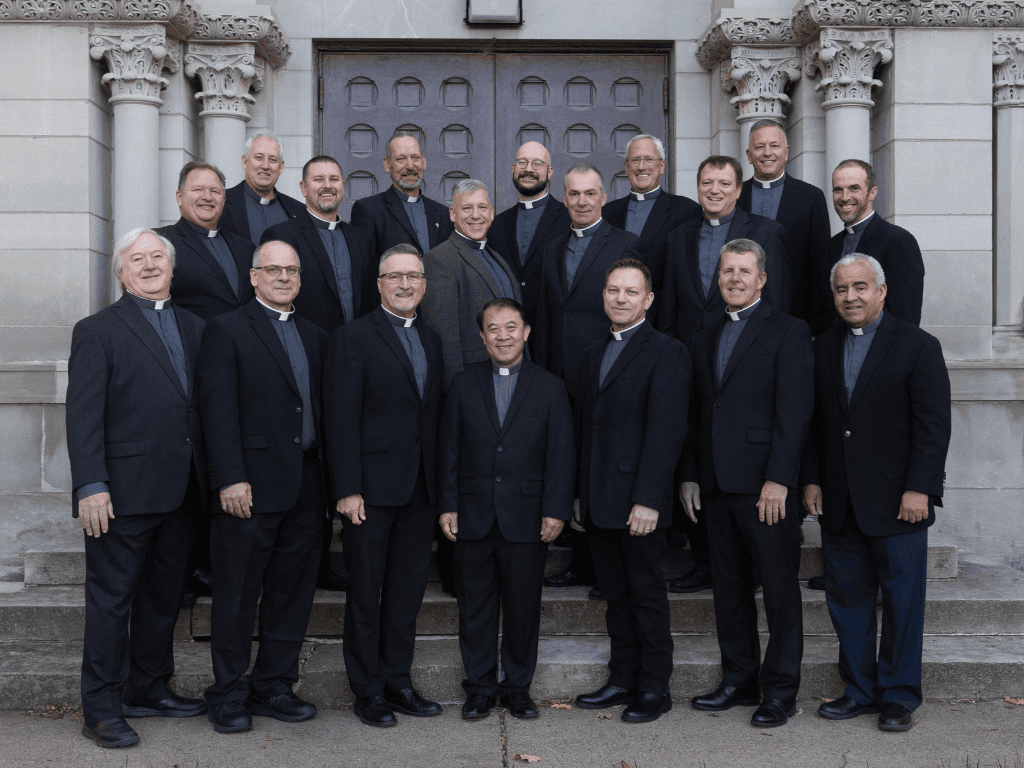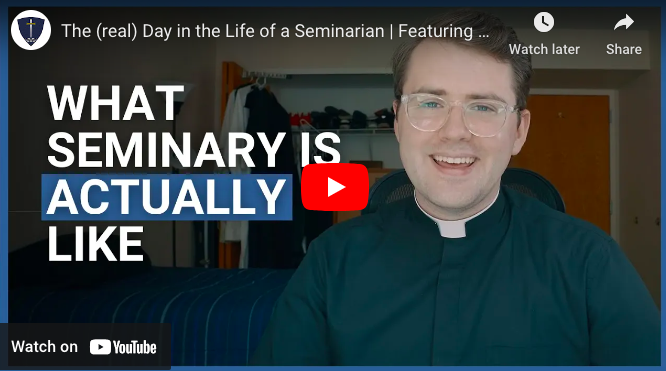Patty McQuillan fit the stereotype of a rock-solid, Upper Midwestern Catholic.
Full-blooded Irishwoman. Devoted wife with a faithful husband. Six kids. Archdiocese of Saint Paul and Minneapolis office of vocations coordinator – essentially a third arm and a second brain for Director of Vocations Father David Blume. Frequent Bible study, prayer group and apostolate participant.
But sometimes, nothing can fully prepare us for what lies ahead.
In 2020, McQuillan’s brother lay alone in a hospital bed, fighting for his life. COVID-19 regulations rendered text messaging his most effective form of communication.
Every day, Patty sent him a message of hope.
“It’s like I didn’t know where the words came from,” McQuillan says now. “Words of love, hope and encouragement were coming and they were flowing through me. … It seemed each day, in his word, God shared with me what he wanted me and my brother to know. God wanted him to know he was not alone and that there is hope. I encouraged him to unite his suffering with Christ.”
At the same time, McQuillan was taking part in The Saint Paul Seminary Catechetical Institute’s School of Discipleship – a seven-week course taught by institute founder Jeff Cavins that teaches the basics of discipleship, how to share one’s faith with confidence, and how to cultivate a deeper life of prayer.
The timing is no coincidence, McQuillan said.
Before enrolling in the School of Discipleship, she wasn’t as confident sharing her faith with others. That changed.
“With the grocery store carryout person or even with an Uber driver,” she said, “he wants to be shared.”
Which is why the Archdiocese of Saint Paul and Minneapolis is sending about 12 people from each of its parishes – and many of their spouses – through the School of Discipleship this winter. It’s one of several ways The Saint Paul Seminary is partnering with its archdiocese on implementing local Church priorities that came out of the three-year Synod process.
Priorities of the Synod, which took feedback from clergy and laity alike throughout the archdiocese and synthesized it into a strategic plan of sorts for the local Church to minister most effectively in the current societal context, include equipping parishioners to evangelize in their families, workplaces and communities. Hence the creation of “synod evangelization teams” at each parish, all of whom began their School of Discipleship formation on Feb. 7.
“We are just honored at the Catechetical Institute at The Saint Paul Seminary to be able to serve the archbishop in this capacity as he’s rolling out his vision for synodality,” said Kelly Wahlquist, director of the Catechetical Institute. “With the School of Discipleship, most importantly, it’s that aspect of people really recognizing and relying on the role of the Holy Spirit in the life of the disciple – and how that unites us not only to Christ, but also unites us to one another, as we’re all on this journey together.”
The full strategy is outlined in Archbishop Bernard Hebda’s pastoral letter “You Will Be My Witnesses: Gathered and Sent from the Upper Room.”
The seminary, he said later, is playing a vital role in bringing the Synod to life.
“The School of Discipleship offered by the Catechetical Institute will essentially serve as the catalyst for the implementation of our post-synodal plan, providing a foundation for the members of the parish synod evangelization teams established by our 2022 pastoral letter,” Hebda said. “The nearly 2,000 students – from every corner of the Archdiocese – will be formed to live a life of discipleship and become witnesses for Christ in their everyday lives and particularly in their evangelization work in their parishes.
“The Archdiocese couldn’t do this work without our great seminary.”
Beyond the School of Discipleship, that work includes significant reflection on Hebda’s letter within the seminary. Rector Father Joseph Taphorn presented it to all the seminarians at one of his regular rector’s conferences, and Academic Dean Christopher Thompson and his team of professors and support staff spent most of the J-Term dissecting it.
One tangible outcome: The seminary will offer new courses for seminarians and lay graduate students in small group leadership, the Holy Spirit, the Eucharist and parents as the primary educators of children in the next year. Each topic represents a key theme in the archdiocese’s priorities.
“Reading the synod letter, we thought about how the school could enter into it and serve,” Thompson said. “The letter seems to me really centered on renewing an experience in the individual, renewing an experience of the presence of the Holy Spirit in that person’s life; one of the things we can do as a school is provide the supporting architecture around that.”
Three seminary staff members – Director of Finance and Business Operations Ann Kopecky, Marketing and Communications Specialist John Stokman and Assistant to the Dean and Office Manager Angie Hughes – are serving on their respective parishes’ evangelization teams, along with five candidates currently enrolled in the Institute for Diaconate Formation.
McQuillan is part of her parish’s team at Nativity of Our Lord in St. Paul, too.
In addition, Deacon Joseph Michalak is currently transitioning from the seminary’s director of the Institute for Diaconate Formation to director of the archdiocese’s office of synod evangelization. Current IDF associate director Deacon Eric Cooley will assume Michalak’s leadership duties for the institute.
“The vision is for parishes – and the seminary – to become schools of missionary discipleship for the New Evangelization,” Michalak said.
The desired impact: more stories like those of Patty McQuillan, of Catholics inviting those inside and outside their communities to a deeper relationship with Christ, no matter the circumstances.
Her brother, by the way, made a full recovery.
“Our relationship is much closer because God was invited in at a much deeper level,” said McQuillan, who shared her testimony with more than 500 people at the first synod evangelization team kickoff event in January. “I believe the Synod, with the School of Discipleship training, will have a tremendous ripple effect on our Archdiocese.
“I forecast a tidal wave of grace.”
Editor's Note: A version of this story originally ran on The Saint Paul Seminary website, which is located at the University of St. Thomas.







